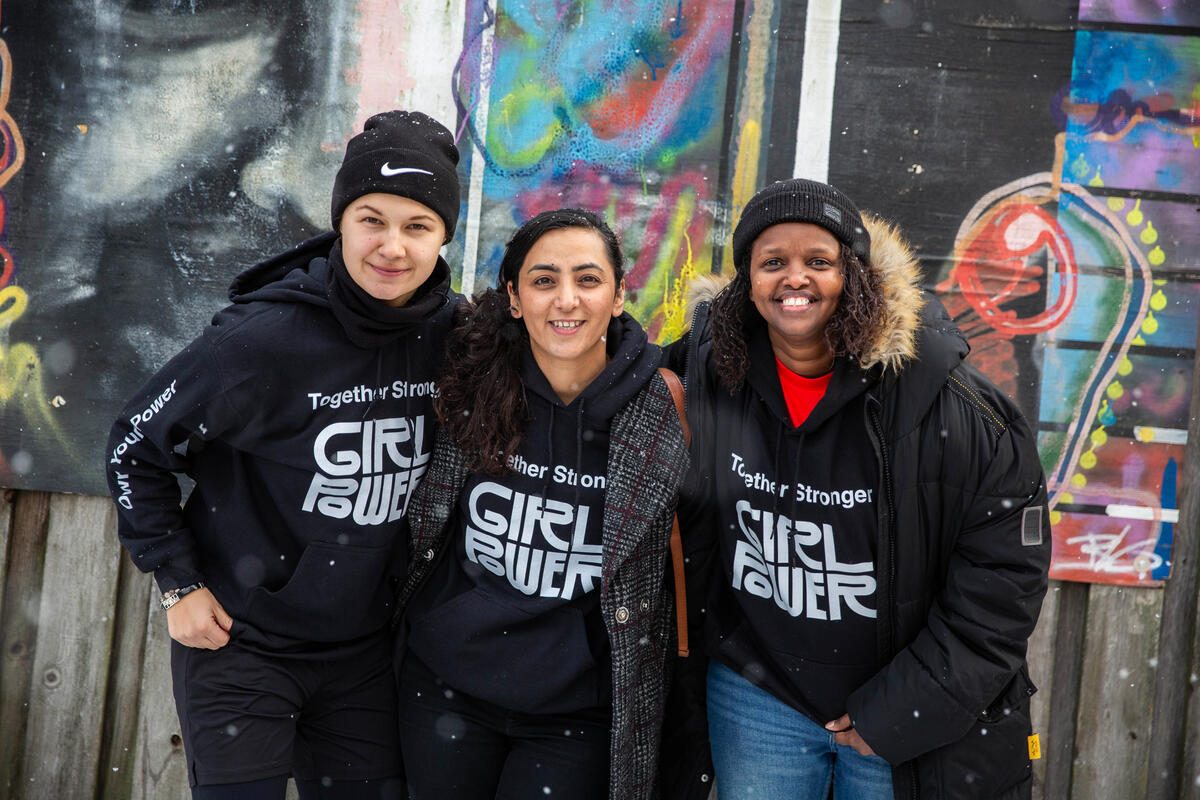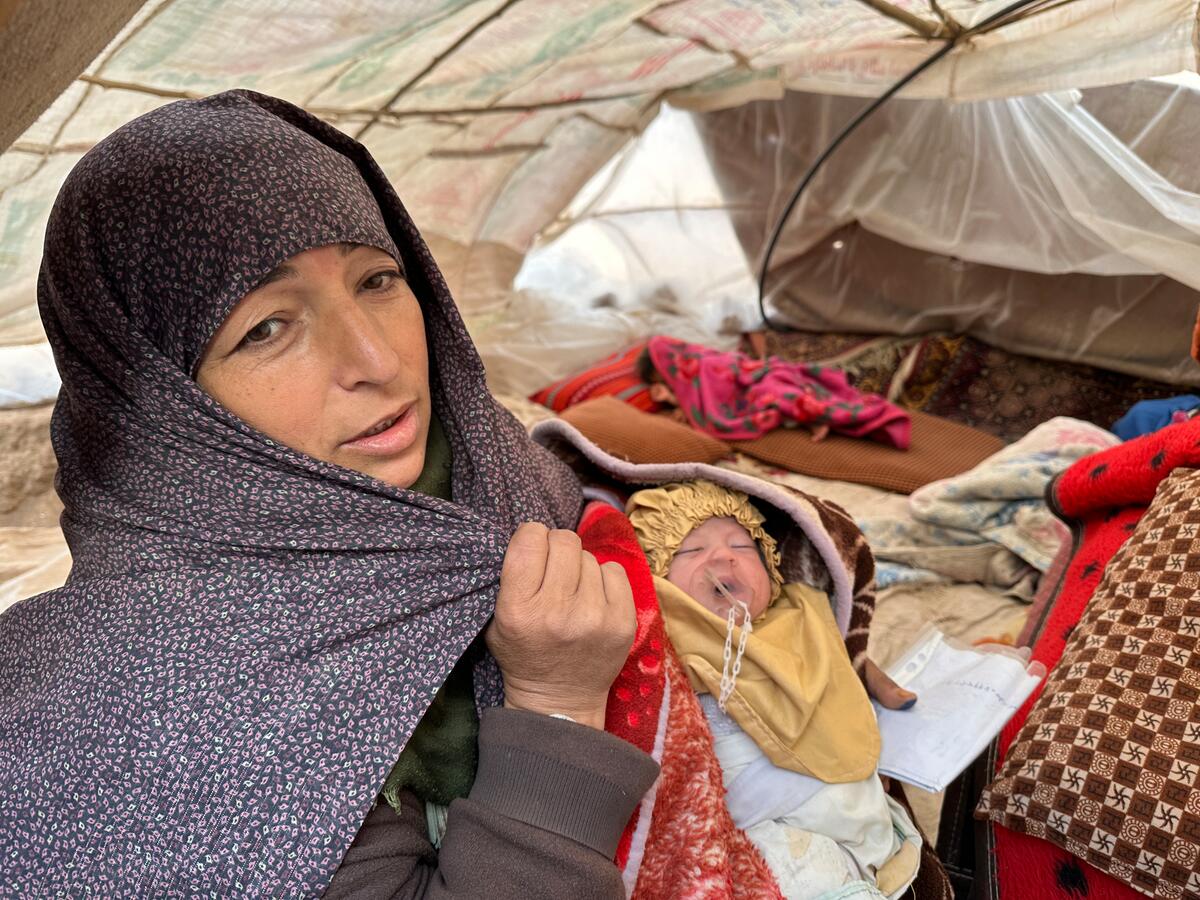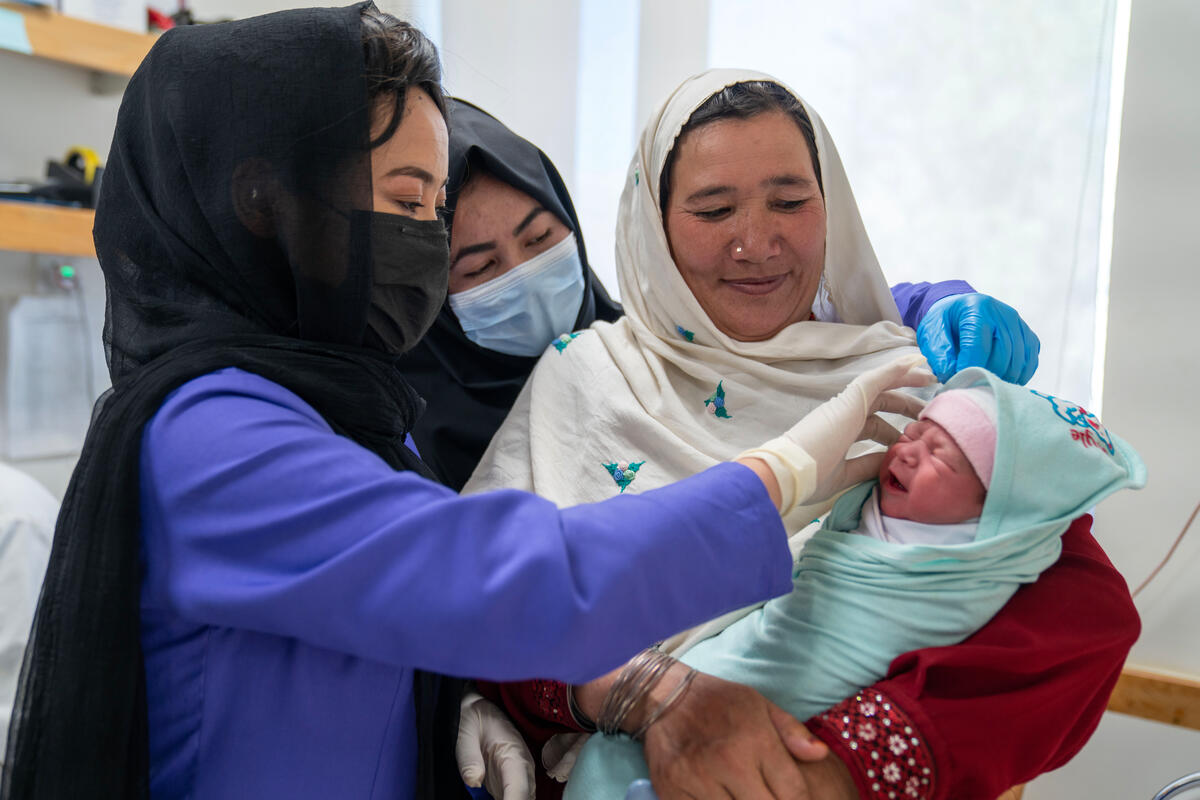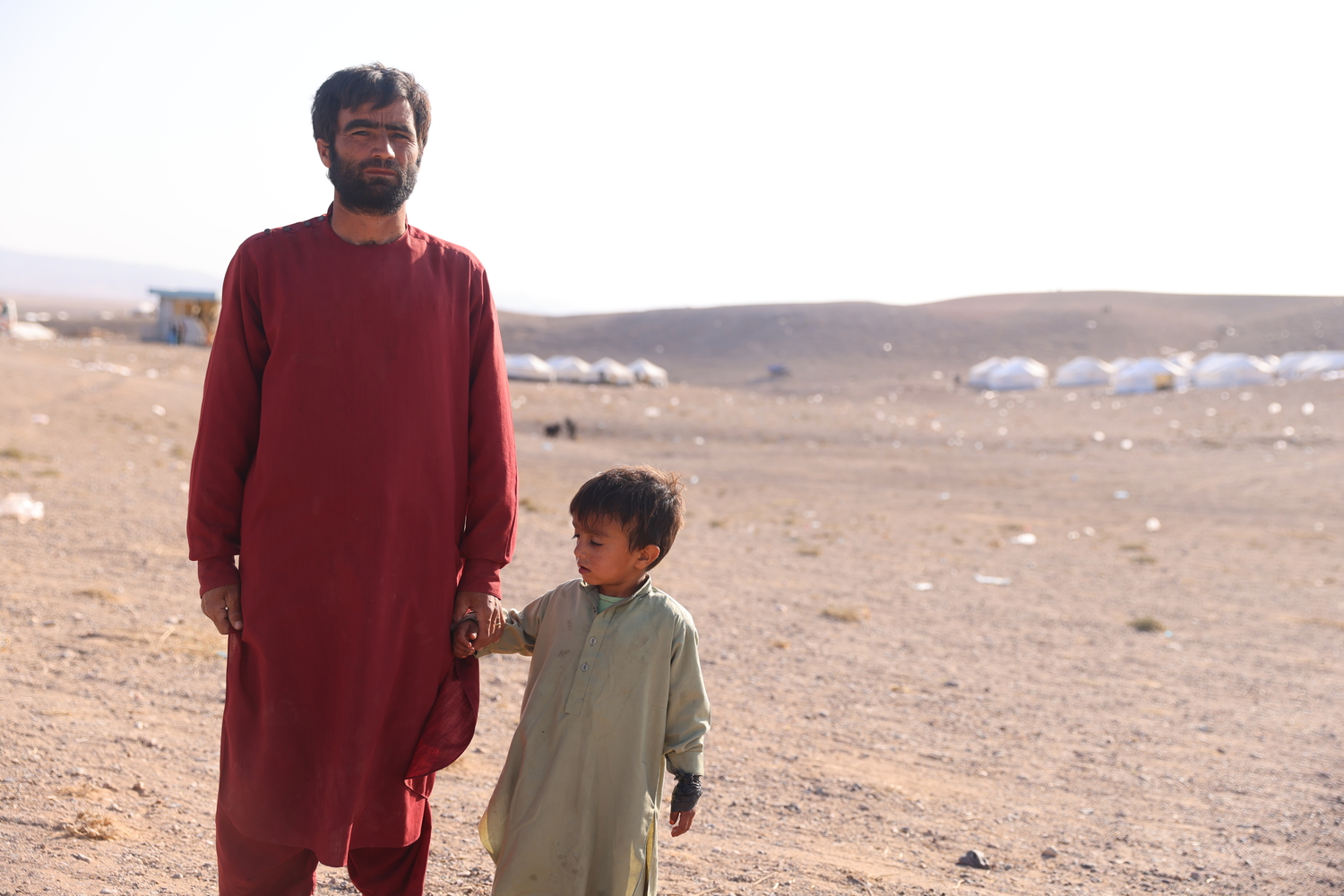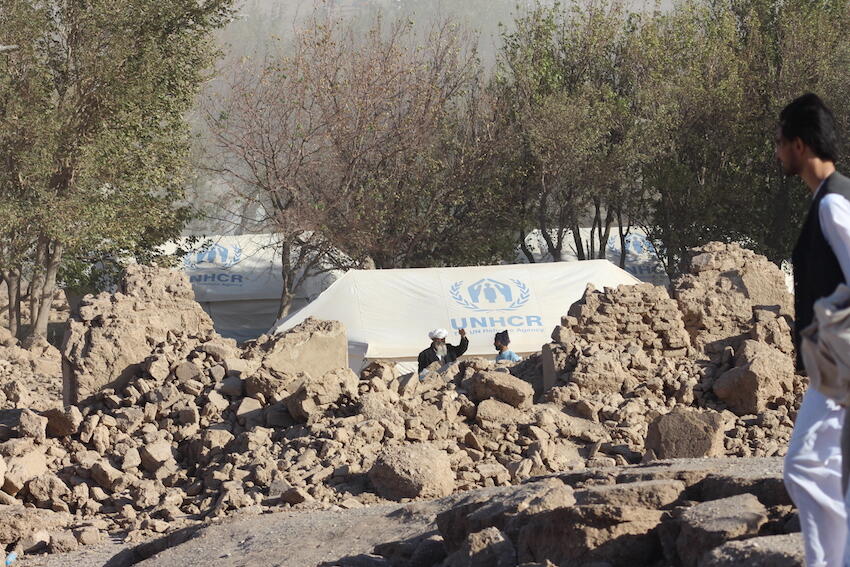Afghanistan, Iran, UNHCR reaffirm commitment
to voluntary, safe and dignified return of Afghan refugees from Iran
Afghanistan, Iran, UNHCR reaffirm commitment
to voluntary, safe and dignified return of Afghan refugees from Iran
to voluntary, safe and dignified return of Afghan refugees from Iran
KABUL: Representatives of the Governments of the Islamic Republics of Afghanistan and Iran and the United Nations High Commissioner for Refugees (UNHCR) today in Kabul reaffirmed their commitment to the principle of voluntary repatriation, in safety and dignity, to end the protracted stay of Afghan refugees in Iran. The parties agreed that innovative approaches and enhanced outreach are needed in order to support the voluntary return and sustainable reintegration of Afghan returnees.
Today's meeting constituted the 19th Tripartite Commission Meeting between the two governments, with the last meeting having been held in January 2013. The Tripartite Commission Meeting constitutes part of the larger Solutions Strategy for Afghan Refugees (SSAR), which provides a regional framework for coordinated action on behalf of Afghan refugees, many of whom have lived in exile for more than three decades.
While recognizing the considerable challenges that remain for the full and effective reintegration of Afghan refugees, the parties emphasized the positive steps that can be taken to support voluntary repatriation and sustainable reintegration, including regular exchange of information between the governments, cross-border cooperation on livelihoods initiatives, and prioritization of returnees in the Government of Afghanistan's social protection and development initiatives envisaged under Afghanistan's new comprehensive voluntary repatriation and reintegration strategy.
The meeting also emphasized the importance of developing novel approaches to supporting return and reintegration, such as the Enhanced Voluntary Return and Repatriation Package, which aims to complement cash assistance provided to returnees on arrival in Afghanistan with additional financial assistance spread over the first six months of starting a new life in their home country. The scheme aims to promote construction of shelter or pursuit of livelihoods opportunities, as a complement to other forms of assistance such as land allocation.
The Minister of Refugees and Repatriation (MoRR), Mr. Sayed Hussein Alimi Balkhi, expressed his thanks to the Government of Iran for its longstanding commitment to hosting Afghan refugees, as well as cooperating with the Government of Afghanistan in the context of regional initiatives designed to support voluntary repatriation and effective reintegration. "The Government of National Unity is committed to making the voluntary repatriation of its citizens among its highest national priorities", noted Mr. Balkhi. "The recent establishment of the High Level Commission on Migration chaired by the President and supported by MoRR together with its international partners is testimony to this commitment at the highest levels."
Iran's Director General of the Bureau for Aliens and Foreign Immigrants Affairs (BAFIA), Mr. Ahmad Mohammadifar, recognized the initiative of the Government of Afghanistan in according returnees a prominent position in social protection programming, including job creation plans, social and affordable housing initiatives, and land allocation. "The need for new thinking on return is clear, and we are encouraged to see the Government of Afghanistan re-examining its policies and looking for ways to further support return."
UNHCR's Representatives in the Islamic Republics of Afghanistan and Iran, Ms. Maya Ameratunga and Mr. Sivanka Dhanapala, emphasized the importance of the current post-transition era in Afghanistan, which presents a unique opportunity for proactively seeking lasting solutions for Afghan refugees. They highlighted the need to ensure that returnees are included in the new reform agendas of the Government of National Unity and commended the Governments of Afghanistan and Iran for ensuring that their policies on Afghan refugees are aligned and mutually reinforcing.
"UNHCR and the international community will continue to support regional approaches to ending the protracted displacement of Afghan refugees, recognizing that Afghanistan's neighbours, as responsible members of the international community, have consistently fulfilled their international obligations and should be supported in continuing to do so, as voluntary and dignified return takes place gradually and as conditions in Afghanistan permit", said Ms. Ameratunga.
Mr. Dhanapala added "After over 30 years, we are approaching a critical juncture in the Afghan refugee situation, where we must find a convergence of interests in the pursuit of lasting solutions. Today's discussion marks a significant step in that direction."
In addition to the above, the parties discussed a number of topics including voluntary return trends, mass information campaigns, go-and-see visits by Afghan refugees to gauge the prospects for return to their home country, and updates on the implementation of the SSAR. The next Tripartite Commission meeting will be held in Teheran by August 2016.
Following the Tripartite Commission meetings with Iran and with Pakistan during August 2015, UNHCR's Executive Committee governing board of member states will feature the Afghan refugee situation as its High Level Segment on 6 October 2015 at the annual meeting in Geneva, in order to mobilise strengthened international support for the largest protracted refugee situation under UNHCR's mandate.
Media contact
Muhammad Nader Farhad in Kabul +93 791990018
Samar Maleki in Teheran +98 912 105 8206

